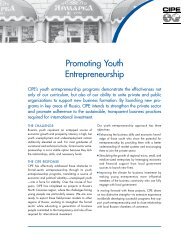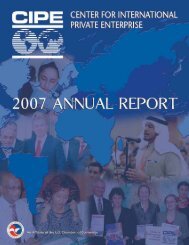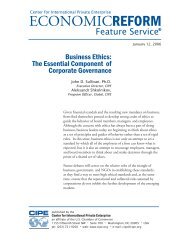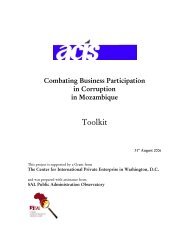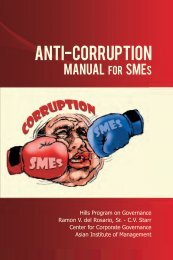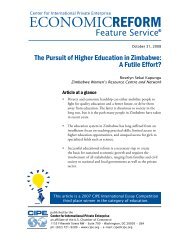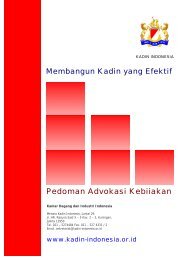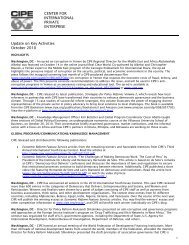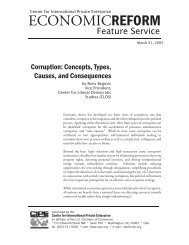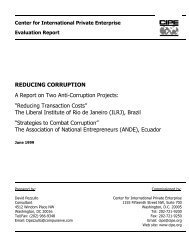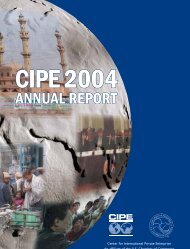Responsible Business Guide: A Toolkit for Winning Companies
Responsible Business Guide: A Toolkit for Winning Companies
Responsible Business Guide: A Toolkit for Winning Companies
You also want an ePaper? Increase the reach of your titles
YUMPU automatically turns print PDFs into web optimized ePapers that Google loves.
RBG<br />
<strong>Responsible</strong> <strong>Business</strong> <strong>Guide</strong>: A <strong>Toolkit</strong> <strong>for</strong> <strong>Winning</strong> <strong>Companies</strong><br />
RBF Pillar 3: Compliance and Disclosure<br />
Allowing a group of persons to conduct business without exposure to individual liability<br />
makes the incorporated company a most potent vehicle of economic activity. At the same<br />
time, this privilege is regulated by laws requiring companies to demonstrate financial<br />
transparency, fiscal prudence, and fiduciary trusteeship through a variety of disclosure<br />
mechanisms.<br />
Compliance Laws and Regulations<br />
Regulatory or legal requirements relevant to corporate compliance and disclosure span a<br />
wide range in Pakistan. 20 The term compliance, in this context, implies con<strong>for</strong>ming to<br />
specific laws, regulations, policy guidelines, or approved standards of per<strong>for</strong>mance prescribed<br />
by the authorities. In practice this means a company providing specific data to the authorities<br />
(or to courts in the case of dispute) that demonstrates a company has fulfilled its compliance<br />
obligations consistently and completely.<br />
In everyday business, compliance takes a number of <strong>for</strong>ms, including placing revenue<br />
stamps on attested documents, filing sales tax returns, reporting business data on outflows,<br />
certifying adherence to quality standards <strong>for</strong> particular products, or signing disclosure<br />
statements <strong>for</strong> banking or commercial transactions. Financial reporting is the most commonly<br />
understood <strong>for</strong>m of compliance among the business community, because it is the most<br />
closely regulated under law. It includes tax reporting, fiscal controls, labor rights, employee<br />
benefits, health and safety measures, and, more recently, corporate governance and social<br />
investments.<br />
In addition, <strong>for</strong> businesses dealing with overseas clients, there are international regulations,<br />
particularly within the European Union and the United States, that typically require disclosure<br />
of value, origin, and content, but are increasingly seen to address social responsibility,<br />
environmental safety, and even fair trade and security. These aspects, like financial<br />
accounting, frequently require the establishment of a compliance system within a company<br />
that tracks the entire organization’s operations <strong>for</strong> specific compliance data at the processlevel<br />
and generates in<strong>for</strong>mation that can be reported under law. Such a system is often<br />
used by companies to safeguard their internal processes against fraud or misappropriation<br />
by employees or managers and to optimize business profitability by avoiding breach of law<br />
and its costly consequences.<br />
<strong>Responsible</strong> <strong>Business</strong> Initiative 31



